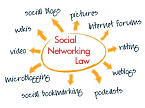
What does the new Missouri Social Networking law do?
The Missouri legislature passed a new social networking law in order to restrict communications between teachers and students over the internet.
Specifically, the law prevents teachers from adding their students as friends on social media websites like Facebook (and probably Google+ Circles too), and it restricts teachers from communicating with students in over other online communication services. Though intended to prevent teachers and students from engaging in sexual encounters, many have criticized the broad language of the bill, and complained that the bill will in fact restrict valuable communication between teachers and students.
Why is the Missouri social networking law controversial?
While perhaps the state social networking law will prevent some teachers from exchanging lewd messages with their students using social media, many claim the law will have numerous unforeseen consequences. Electronic communication currently legitimately used by coaches to alert players about changes in practice schedules and teachers to alert students about new homework requirements might be eliminated because of the new law. With such a law in place, perhaps even simple email communication between teachers and students, such as when a student has questions about an upcoming test, concerns some individuals.
Questions also have arisen in regard to teachers who are family friends of a student, or friends of that student’s parents. Would the Missouri social networking law prevent teachers from interacting with students online even when teachers have preexisting social relationships with those students? The actual practicality of the bill stopping teacher/student sexual relationships perhaps also deserves scrutiny as those teachers intent on having sex with students could instead communicate in other ways, as they undoubtedly did prior to internet communications.
What does this new social networking law, and other similar laws, mean for Missouri and the country as a whole?
Teachers, especially in Missouri and in others states considering passing a social networking law similar to the Missouri one, should avoid electronic communication with students unless they thoroughly understand the ramifications of what could go wrong. Time will tell whether the law does in fact cut down on teacher/student sexual relations, or if it simply puts a boundary between the two groups and impedes actual legitimate learning.
Missouri’s passage of another law further demonstrates the state’s concern with and attention paid to, issues involving schools and the internet. In this second law, lawmakers responded to pressure from the American Civil Liberties Union (ACLU) and other like-minded groups by removing non-explicit homosexual websites from the list of websites censored from schoolchildren. The legality of informational non-explicit gay and lesbian websites was seen by lawmakers and advocates as information that could be beneficial to a student’s education, and thus not information that should be further banned or prevented by school censorship.
The only thing that remains clear is that Missouri, like other states, is struggling with how to protect students online, including censorship issues and social networking law restrictions.
